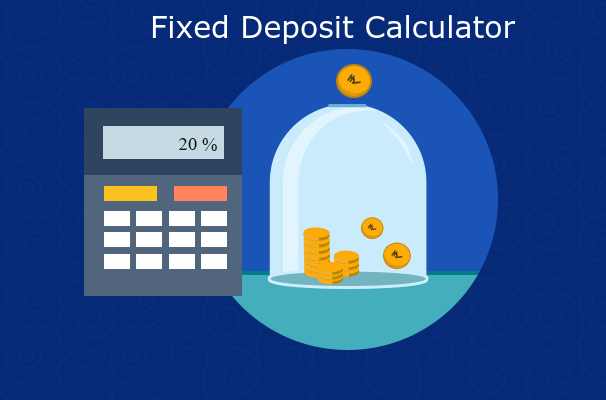We live in an age where for many people two things matter – how much they earn and how much they save. A job certainly helps us in earning money and savings can be crucial to help us with the various expenses and needs of our family. But for true stability, there is a third factor worth considering i.e. where and how much you should invest.
Investments can be crucial in giving both tax-savings and returns. Keeping these goals in mind, let us understand the various terms and benefits associated with fixed deposits and ELSS.

What They Are?
An Equity Linked Saving Scheme (ELSS) is an investment; wherein, the principal amount is invested in products relating to equities. Whereas a fixed deposit is a savings scheme offered by various banks and financial institutions. Note that it is possible to avail these facilities online or through the office of a bank or investment company.
Tenor
For a fixed deposit, the minimum lock-in period is 1 years, and the maximum tenor can be of 5 years. In the case of ELSS, the minimum tenor is 3 years but you can choose longer tenors as per your financial strategy.
Returns
For a fixed deposit, the returns remain fixed. The amount earned depends on the FD interest rate and the tenor. The interest rate herein may be around up to 8.30%.
For deciding the tenor and other factors, one can also consider using online FD calculators. Various companies provide you with detailed choices according to which you may choose the investment that best meets your needs.
When it comes to ELSS, however, there is some amount of risk associated with the returns. Because these returns depend on how different stocks and stock holdings perform in the market. But overall in the long term, ELSS is considered to give good returns.
Additionally, for ELSS, the returns may be taken as a lump sum on maturity or as dividends during the tenor of investment.
Taxation
As per section 80C, tax-saving FDs and ELSS investments can avail tax deductions of up to INR 1.5 Lakh. Moreover, for ELSS, the returns at the time of maturity and dividends are both tax exempt.
But in the case of a fixed deposit banks will also be deducting the TDS as per the tax bracket applicable to an individual. Accordingly, TDS may be charged from 10-30%. Note that to prevent banks from deducting the TDS you have to submit the 15H/15G form.
Making a Choice
Clearly, the fixed deposit remains one of the safest options for an investment. For an investor who is still risk averse and has only started developing an investment portfolio, FDs are a good choice. However, it is essential that the tenor and interest rate offered by different lenders are taken into careful consideration. One may even consider having FDs with varying tenors according to a person’s financial goals.
More importantly, the effect of inflation on the returns of an FD should also be taken into consideration.
Now for an investment in ELSS, a certain risk-handling capability is a must. This scheme is for those looking to make a long-term gain while also managing to save taxes. An ELSS is also for those who do not want to directly invest in equity. Note that the returns from ELSS can be around 15-20% subject to market conditions and the period of investment. But there is no certainty about earning a profit.
As stated earlier we live in times where sound investments could make a significant difference in our long-term financial stability. ELSS and FD both offer certain benefits. Now it is up to you to begin formulating an investment plan and accordingly choosing investments that best suit your needs.




